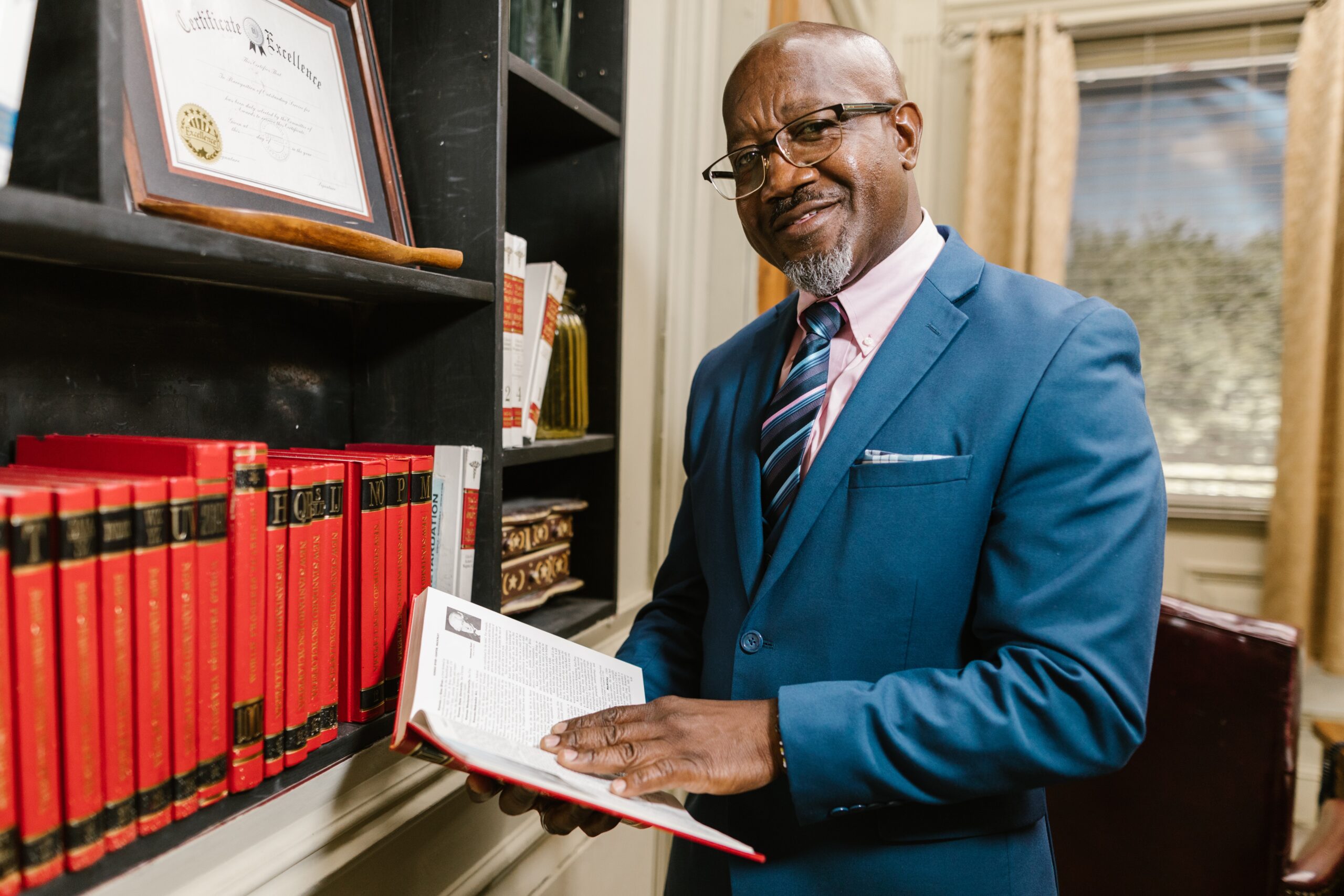Why Brownstone Law Texas Appeals Attorneys Are the Best Selection for Your Situation
Why Brownstone Law Texas Appeals Attorneys Are the Best Selection for Your Situation
Blog Article
Maximizing Your Appeal: Just How Professional Help Can Enhance Your Appellate Strategy
In the world of appellate campaigning for, the relevance of utilizing professional aid to strengthen one's appellate strategy can not be overemphasized. By enlisting the know-how of professionals well-versed in the nuances of appellate practice, companies and individuals can unlock a wide range of benefits that extend far beyond conventional lawful representation.
The Value of Appellate Expertise
When browsing the complex world of appellate law, possessing specific know-how in appellate procedures and approaches is vital for attaining positive end results. Appellate knowledge encompasses a deep understanding of the nuances of appellate practice, which varies dramatically from test advocacy. Appellate attorneys must have a keen eye for lawful study, persuasive writing, and dental advocacy abilities tailored to the appellate court's particular demands.
An appellate expert brings a distinct capability to the table, developed through years of experience handling allures and staying abreast of developing legal precedents. This experience enables them to craft compelling lawful arguments, recognize essential issues that reverberate with appellate courts, and expect and counter opposite counsel's disagreements efficiently.
In addition, appellate experts are well-versed in the complicated step-by-step regulations governing allures, making sure that all submitting due dates, formatting demands, and administrative problems are carefully stuck to. By leveraging their specialized expertise, appellate lawyers can navigate the appellate procedure with accuracy and skill, optimizing their clients' possibilities of success on appeal.
Strategic Evaluation and Situation Examination
Structure upon the foundation of appellate proficiency, critical evaluation, and case assessment play pivotal duties in formulating a durable appellate technique. It requires a deep understanding of the legal landscape, step-by-step policies, and prospective debates that might sway the appellate court.
Instance examination is equally important, concentrating on evaluating the valid and legal aspects of the case to identify its practicality on appeal. This procedure entails scrutinizing high court records, proof, and judgments to determine errors or concerns that might create the basis of a successful appeal. A precise situation examination allows attorneys to craft influential disagreements that attend to the core problems and convince the appellate court to rule in their client's favor.
In combination, calculated analysis and situation evaluation create the cornerstone of an efficient appellate technique, directing lawyers in navigating intricate lawful surface and maximizing their chances of success on charm.
Crafting Engaging Lawful Disagreements
Crafting engaging lawful disagreements is an essential ability that identifies proficient appellate practitioners in offering convincing situations before the court. Efficient lawful argumentation calls for a deep understanding of the law, important analysis of the truths, and the capability to connect intricate concepts in a influential and clear manner. When crafting lawful disagreements, appellate professionals need to meticulously take into consideration the appropriate legal concepts, criteria, and policy implications to construct a meaningful and strong story that sustains their customer's placement.

Browsing Procedural Intricacies
To successfully navigate procedural intricacies in appellate method, experts must possess a thorough understanding of the relevant policies of treatment and court methods. Appellate treatments differ among territories, necessitating a keen recognition of details demands governing issues such as administrative due dates, submitting procedures, and formatting standards. Failing to comply with these step-by-step guidelines can cause costly hold-ups, permissions, and even dismissal of the allure.
One secret aspect of navigating procedural intricacies is acknowledging the importance of maintaining concerns for appeal at the trial court degree. This involves making timely arguments, movements, and deals of proof to make certain that appellate courts have a correct record to evaluate (Brownstone Appellate Law Firm). Additionally, practitioners must master the art of composing clear and succinct appellate briefs that conform with formatting requirements and effectively existing legal disagreements
Additionally, comprehending the ins and outs of oral disagreement treatments, like it including time limits and the decorum expected in appellate courts, is critical for an effective appeal. By staying attuned to these procedural complexities, specialists can boost their opportunities of achieving a beneficial outcome for their customers on allure.

Leveraging Specialized Legal Knowledge
Specialized legal experience plays a pivotal role in strategically advancing appellate debates and optimizing the opportunities of success in complicated lawful proceedings. Leveraging customized legal understanding can provide a substantial advantage when crafting appellate approaches. Appellate situations often involve intricate legal concerns that need a deep understanding of particular locations of legislation. By involving experts with experience in the appropriate lawful field, applicants can gain from nuanced insights and customized methods that are vital for providing engaging debates.
Specialized legal knowledge permits experts to determine essential criteria, guidelines, and legal doctrines that are pertinent to the case available. This comprehensive understanding allows them to expect potential challenges, counterarguments, and chances for persuasive campaigning for. Specialists can offer useful point of views on exactly how the legislation has been interpreted and used in comparable cases, aiding to shape a much more effective appellate approach.

Conclusion
In final thought, professional assistance can significantly enhance your appellate approach by offering proficiency in navigating procedural intricacies, crafting engaging legal arguments, and leveraging customized lawful understanding. By using the skills and experience of appellate experts, individuals can maximize their chances of success in the appellate process. Tactical analysis and case assessment are necessary parts of establishing a solid appellate strategy that can help to boost the appeal of your instance.
In the realm of appellate advocacy, the importance of utilizing specialist help to fortify one's appellate method can not be overemphasized.When navigating the elaborate realm of appellate regulation, possessing customized experience in appellate treatments and techniques is critical for attaining desirable end results. Appellate knowledge encompasses a deep understanding of the nuances of appellate method, which varies considerably from test advocacy. Appellate attorneys must from this source have an eager eye for lawful research study, convincing writing, and oral advocacy skills customized to the appellate court's specific needs.
Structure upon the structure of appellate experience, calculated evaluation, and instance analysis play pivotal duties in formulating a robust appellate strategy. (Brownstone Law Texas appeals attorneys)
Report this page